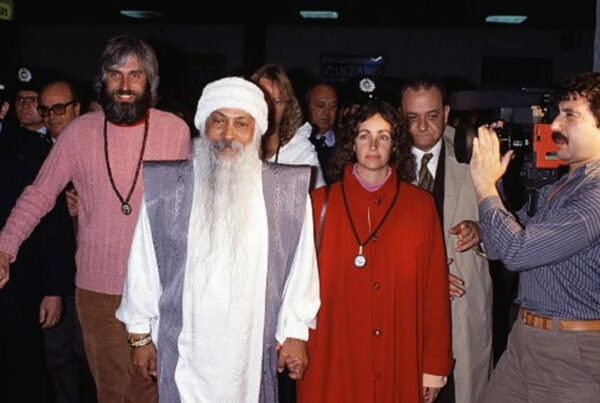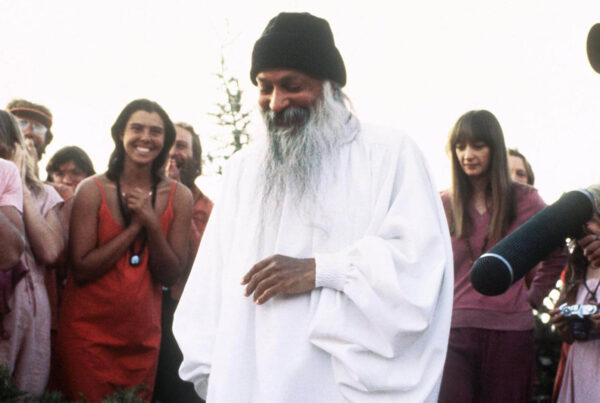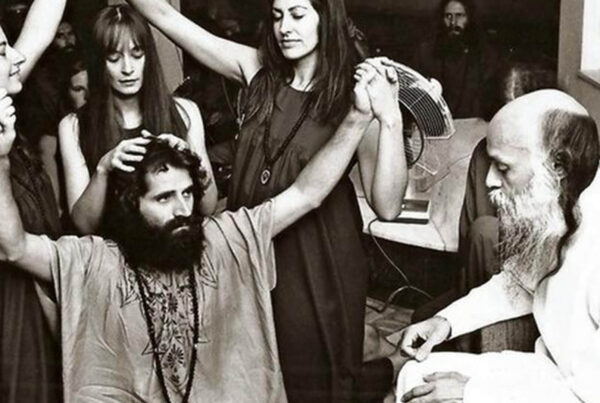
Beloved Osho,
Could you please explain the difference between trusting existence and fatalism?
The difference between trust and fate is very subtle. On the surface it seems they mean exactly the same thing, but in reality they are diametrically opposite experiences.
Fate is a consolation. You are poor, and you see others getting richer and richer – some consolation is needed. You do everything and you do it honestly, truthfully, morally. You never use wrong means; still you are a failure. And you see others being dishonest, cunning, insincere, immoral, criminal, using all kinds of wrong means and succeeding, becoming richer, attaining power, prestige. How to explain it?
It is not new. Since the very beginning man has been puzzled by it. And he had to create some idea as a consolation. Fatr, kismet, destiny, God – everything is written in the lines of your hand, in the lines of your forehead; everything is predetermined in your birthchart, you cannot do anything against it. The forces that have determined your life are too big. You are going to fail; it is better to accept your failure as destiny. It hurts less to say it is fate; it gives consolation. It is not your doing, it is not your failure – what can you do against the stars?
You cannot determine your birth time and the day and the year.
You come into the world just like an actor, comes onto the stage fully prepared. He cannot change anything.
The belief in fate is simply a consolation because we cannot accept our failure as failure.
And we cannot accept our failure for another reason – because it has implications for all our moral values: “We were honest, we were moral, we followed right means, we were truthful, and yet we failed. And the other person was dishonest, cunning, insincere, immoral, criminal, and yet he succeeded”.
Now, the whole moral system teaches that truth is going to win, that morality is going to win, that honestly is going to win. But in life we see that all the honest people are losing and immoral people are gaining. The cunning, the clever become powerful. The simple and the innocent are crushed. Our whole value system is at stake.
So it was necessary for the priests and the prophets to find a way in which your failure would not be your failure. “You cannot do anything, it is written in your fate. Your failure is not the failure of your sincerity, morality, honesty. And the other person’s success is not the success of wrong means, dishonesty, cunningness – it is his fate.And as far as fate is concerned, nothing can change it – neither honestly nor dishonestly. Yes, because you have been honest you will have a better fate in your future life. Because he has been dishonest, he will have a bitter fate in his future life.
So this way a beautiful consolation, and a beautiful defense – rational – for our moral system.
But it is all bogus.
The truth is, the man has succeeded because of dishonestly, not because of his fate. He has succeeded because of his immorality he has succeeded because he goes not care what kind of means he is using.
Existence gives you birth as tabula rasa. No fate is written; there is no destiny such that whatever you do, it has to happen.
Existence is freedom. Fate is slavery.
Freedom means it is up to you to decide what is going to happen.
Fate is a bogus hypothesis.
But trust is a totally different thing.
Trust is not fate. Trust simply means that “Whatever happens, I am part of existence and existence cannot be intentionally inimical to me. If sometimes that it feels it is, it must be my misunderstanding.”
I have always loved to remember a Sufi master Junnaid. He was the master of Al-Hillaj Mansoor. He had a habit: after each prayer… and Mohammedans pray five times a day. After each prayer he would say to the sky, “Your compassion is great. How beautifully you take care of us, and we don’t deserve it. I don’t even have words to show my gratefulness, but I hope you will understand the unexpressed gratitude of my heart.”
They were on a pilgrimage, and it happened that for three days they passed through villages where orthodox Mohammedans would not allow them even to stay in the villages; there was no question of giving them food or water.
For three days without food, without water, without sleep – tired, utterly frustrated… The disciples could not believe that this man Jannaid, their master, still goes on saying the same things. Before, it was okay – but still he goes on saying, “You are great, you are compassionate, and I don’t have words to express my gratitude.”
On the third evening evening when he had finished his prayer, his disciples said, “Now it is time for an explanation. For three days we have been hungry, we have not had water, we are thirsty; we have not slept, we have been insulted continually, no place has been given to us, no shelter. At least today you should not say, ‘You are great, you are compassionate.’
For what you are showing your gratitude?”
Junnaid laughed. He said, “My trust in existence is unconditional. It is not that I am grateful because existence provides this and that and that. I am – that’s enough. Existence accepts me – that’s enough. And I don’t deserve to be, I have not earned it. Moreover, these three days have been of tremendous beauty because I had an opportunity to watch whether anger would arise in me, and it didn’t arise; whether I would start to feel that God had forsaken me, and the idea did not arise.
There has been no difference in my attitude towards existence. My gratitude has not changed, and it has filled me with more gratitude than ever. It was a fire test, and I have come out of it unburned. What more do you want? I will trust existence in my life and I will trust existence in my death. It is my love affair.
“It is not a question that somebody is rich and somebody is poor, that somebody is successful and somebody is not. It has nothing to do with anybody. It is my personal, intimate contact with reality. And there is great harmony. I am completely at ease and at home.”
Trust is the outcome of deep meditation.
Fate is the outcome of your failures, and a mind consolation.
They are totally different.
Osho, From the book ‘Beyond Enlightenment’


